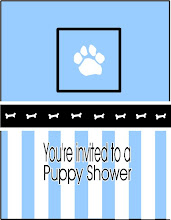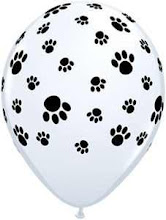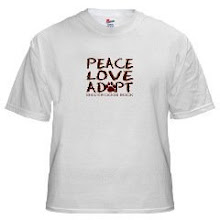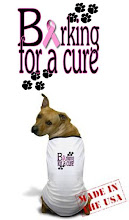Articles Gift Shop Dog Supplies Newsletter Start a Dog Day Care Start a Dog Bakery Pet Greetings Contact Recommended Reading Dog Insurance Link to Us. Dog Collars Dog T-shirts Dog Hoodies Designer Dog Jewelry
Your dog depends on you for all his nutritional requirements. Proper nutrition is essential for a healthy pet to help resist disease and illness, to maintain a lean, healthy weight, and to give your furry friend a shiny coat.
Each dog is different, and your dog's lifestyle (active or sedentary? young or old? hunting dog? racing dog? lap dog? healthy? pregnant?) is the main factor in determining his individual nutritional requirements.
When to feed your dog is an important first question. Puppies need lots of calories every day because they are growing so quickly. It's best to feed puppies small meals several times a day at first. Most adult dogs only need to eat once a day to sustain their energy and nutrient levels. If you work all day and no one is home with your dog, it's probably best to feed him in the evening, so you'll be able to let him out after he eats. But a morning feeding schedule is fine if someone is home with your dog during the day.
Whatever time of day you choose to feed your dog, there are six basic nutrients that he must eat every dy to balance his particular needs: water, proteins, carbohydrates, fats, minerals, and vitamins.
Water is key. Your new best friend needs plenty of fresh water daily...it is one of the most important things you can provide your dog. While a dog can go without food for a while, he will quickly dehydrate without water. This is especially important during the summer months when your dog is outside in the heat. We can't stress enough how important it is to ALWAYS have a fresh bowl of water available for your dog. (A medium size dogs requires about two quarts of water each day!)
If your dog is a normal, active, healthy dog, he only needs a small amount of protein daily. However, young and active dogs need more protein for growth, and older active dogs need more protein as well. The proteins you feed your dog need to come from an animal source.
Carbohydrates help provide your dog with energy, as well as help keep the intestines functioning properly. Most commercial dog foods use corn as their source of carbohydrates. As important as carbs are, however, they should make up no more than about 50% of Fido's diet.
Fats are an essential part of Fido's diet, but they need to be properly balanced with other nutrients. If you're feeding your dog the proper amount of a good, commercial dog food, he should be getting the right amount of fat in his diet.
Your dog doesn't really need a lot of minerals. As long as you feed him a complete, balanced diet, there is no need to supplement with minerals. Most commercial dog foods will provide him with all the minerals he needs.
Dogs require the same vitamins from their food as you do, except for Vitamin C (dogs are able to make their own Vitamin C). Vitamins that are water soluable (such as the B vitamins) need to be replenished every day. Fat-soluable vitamins (like A, E, K, and D) stay in your dog's system longer. It's important that your dog maintain a healthy diet to keep him from developing serious health problems.
For more specific information on the nutritional needs of your dog, talk with your vet.
____________________________
Got a New Puppy? New Puppy Adoption Announcements and more!
Start Your Own Dog Day Care Learn how to start a professional dog day care business
Designer Dog Jewelry A beautiful selection of jewelry designed to capture your dog's personality!
Custom Dog Charm Bracelets Handcrafted, hierloom quality charm bracelets designed for the dog lover.
VetBalance provides 56 key ingredients for optimum nutrition for your dog and you can try it FREE here.
Greenies Dental Treats Greenies are a chewy highly nutritious treat proven effective in preventing buildup of dental tartar. Greenies are formulated with ingredients to diminish odors & bacteria plus strengthen gums and hence extend the life of your dog!
Zodiac Flea & Tick Spray For immediate relief without a mess or hassle. Kills and repels fleas, ticks and mosquitoes plus an Insect Growth Regulator (IGR) to keep flea eggs from hatching.
** Read more articles on dog care and training **
1-800-PetMeds - Get the *Guaranteed Lowest Prices* and Free Shipping for all your Pet's Health Care needs! Frontline, Advantage, Heartgard, and more!
Got a New Puppy? New Puppy Adoption Announcements and more!
Start Your Own Dog Day Care Learn how to start a professional dog day care business
Designer Dog Jewelry A beautiful selection of jewelry designed to capture your dog's personality!
Custom Dog Charm Bracelets Handcrafted, hierloom quality charm bracelets designed for the dog lover.
VetBalance provides 56 key ingredients for optimum nutrition for your dog and you can try it FREE here.
Greenies Dental Treats Greenies are a chewy highly nutritious treat proven effective in preventing buildup of dental tartar. Greenies are formulated with ingredients to diminish odors & bacteria plus strengthen gums and hence extend the life of your dog!
Zodiac Flea & Tick Spray For immediate relief without a mess or hassle. Kills and repels fleas, ticks and mosquitoes plus an Insect Growth Regulator (IGR) to keep flea eggs from hatching.
** Read more articles on dog care and training **
1-800-PetMeds - Get the *Guaranteed Lowest Prices* and Free Shipping for all your Pet's Health Care needs! Frontline, Advantage, Heartgard, and more!










